Find Help
More Items From Ergsy search
-

The 4 Steps to Agree a Financial Settlement on Divorce UK
Relevance: 100%
-

Ultimate Guide to Financial Disclosure on Divorce in the UK
Relevance: 69%
-
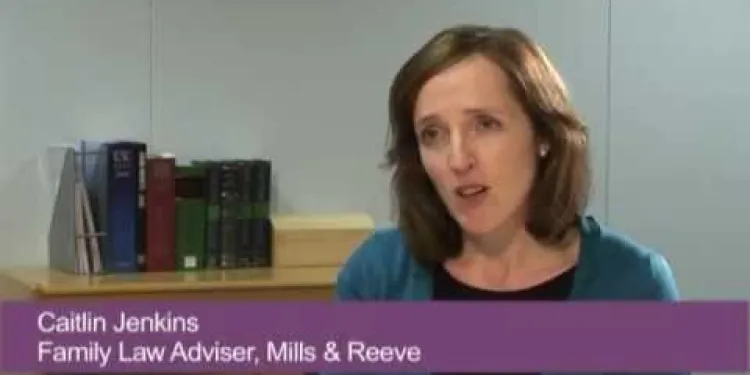
Divorce UK: What happens with the money in a divorce?
Relevance: 68%
-

I'm Getting a Divorce | Tips From a Divorce Lawyer
Relevance: 62%
-

Understanding Your Rights During Divorce Proceedings in the UK
Relevance: 56%
-
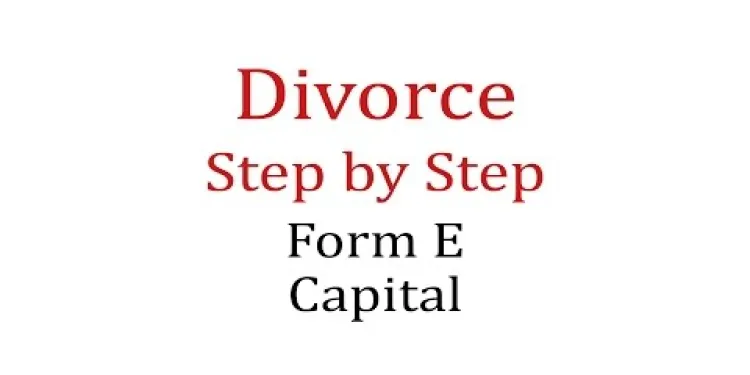
Divorce Step By Step - Form E - Capital
Relevance: 56%
-

Understanding Your Rights in Divorce Proceedings
Relevance: 53%
-

Divorce UK (England and Wales) | UK Divorce Process and Overview Explained PART 1 | BlackBeltBarrister
Relevance: 53%
-
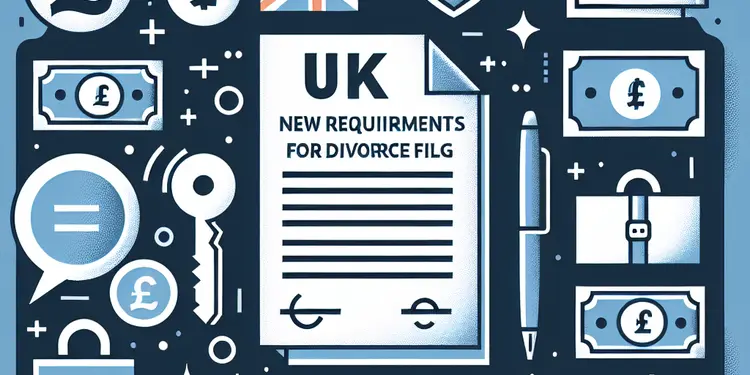
Are there any new requirements for divorce filings in 2026?
Relevance: 52%
-
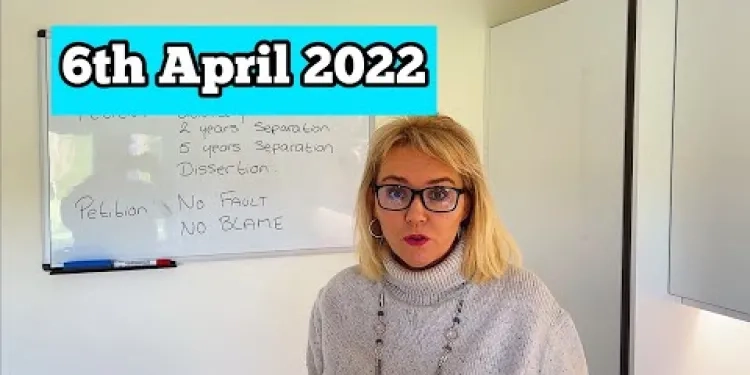
NO FAULT DIVORCE (What is there to know)
Relevance: 51%
-

A Guide to the Divorce Process
Relevance: 49%
-

Can I negotiate a settlement for my student loan?
Relevance: 48%
-

Can firefighter pension benefits be divided in a divorce?
Relevance: 45%
-

Divorce - How To Rebuild Your Life After Losing Everything
Relevance: 42%
-

Navigating Post-Divorce Finances Amidst Economic Challenges
Relevance: 35%
-

Can mediation or settlement efforts impact how long it takes to get to court?
Relevance: 35%
-
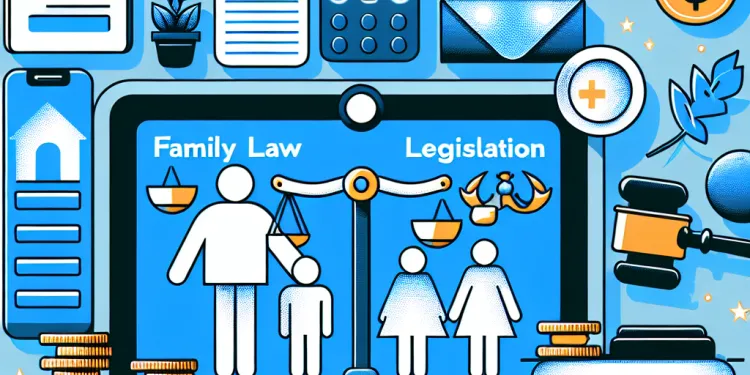
Impacts of Recent Changes to Family Law Legislation
Relevance: 28%
-

Are there any changes to spousal support regulations in 2026?
Relevance: 26%
-

Can a finance broker be liable for mis-selling car finance?
Relevance: 26%
-

How does leasing compare financially to financing a car?
Relevance: 25%
-
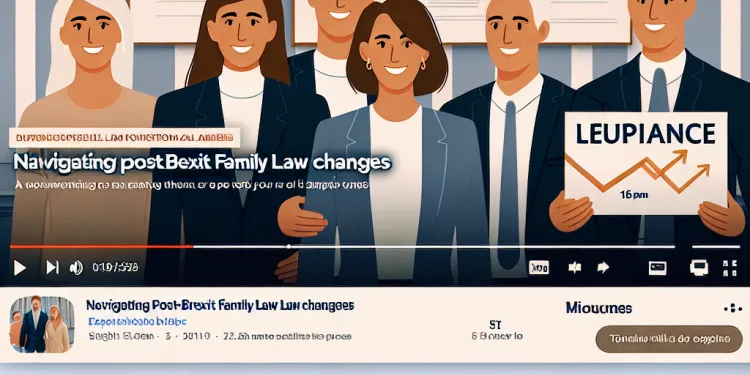
Navigating Post-Brexit Family Law Changes
Relevance: 22%
-

Are there financial aids available for further education?
Relevance: 22%
-

What should I do if my financial situation changes?
Relevance: 22%
-

First Time Buyer Buy to Let Finance Options. Lending Criteria on Mortgage and Bridging Finance
Relevance: 22%
-

Can I modify a car I'm leasing or financing?
Relevance: 22%
-

Can I claim compensation if I was mis-sold car finance?
Relevance: 21%
-

What are the financial implications of the US leaving WHO?
Relevance: 21%
-

How important is financial transparency in preventing disputes?
Relevance: 21%
-

How can I check if I was mis-sold car finance?
Relevance: 21%
-

What does it mean to be mis-sold car finance?
Relevance: 21%
-

How can I verify the credentials of a financial advisor?
Relevance: 21%
-

Why is understanding the terms of car finance important?
Relevance: 21%
-

Do I need to provide financial evidence to HMRC for the arrangement?
Relevance: 21%
-

Can community helpers receive financial assistance?
Relevance: 21%
-

Are there financial support programs for carers of Alzheimer's patients?
Relevance: 21%
-

Helen Starkie, Solicitor, Bath, UK
Relevance: 21%
-
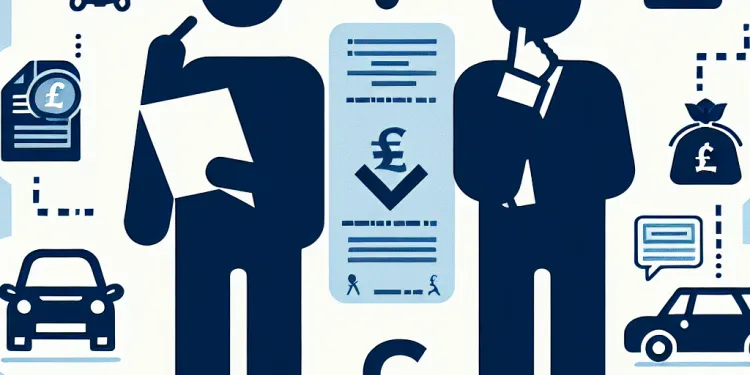
What are common signs of being mis-sold car finance?
Relevance: 21%
-

How do banking fees impact financial inclusion?
Relevance: 21%
-

First Time Buyer Buy to Let Finance Options. Lending Criteria on Mortgage and Bridging Finance
Relevance: 21%
-

What are the financial implications of water loss for the UK?
Relevance: 21%
The 4 Steps to Agree a Financial Settlement on Divorce UK
1. Full Financial Disclosure
The first step towards agreeing on a financial settlement in a UK divorce is ensuring full financial disclosure by both parties. This means that each spouse must provide a comprehensive account of their financial situation, including income, expenses, assets, and liabilities. The objective is to establish an honest and transparent financial picture to inform subsequent negotiations. This process often involves completing a Form E, an extensive financial statement required by the family court.
2. Negotiation and Mediation
After full financial disclosure, the next step is negotiation and mediation. Couples are encouraged to reach an amicable agreement regarding the division of assets and financial responsibilities. Mediation involves a neutral third party, often a professional mediator, who facilitates discussions and assists in resolving disputes. This process aims to reach a mutually acceptable financial settlement without the need for court intervention, saving both time and legal costs.
3. Consent Order
Once an agreement is reached through negotiation or mediation, it is necessary to formalize the settlement with a Consent Order. A Consent Order documents the agreed terms and is submitted to the court for approval. The court ensures that the settlement is fair and reasonable before making it legally binding. Both parties must sign the Consent Order, and it typically includes provisions for lump-sum payments, property transfers, spousal maintenance, and child support. Having legal advice during this step is crucial to ensure a clear understanding of the terms.
4. Court Proceedings (if necessary)
In cases where couples cannot reach an agreement through mediation, court proceedings become necessary. Either party can apply for a Financial Remedy Order, and the court will then schedule hearings to determine the division of assets and financial obligations. Court proceedings can be more time-consuming and costly, but they provide a structured environment for resolving disputes. The judge considers various factors, including the length of the marriage, the financial needs of each party, and the welfare of any children, to make a fair and just decision.
The 4 Steps to Agree a Financial Settlement on Divorce UK
1. Share All Money Information
The first step to agree on money matters in a UK divorce is to share all money information. This means both people must show what they earn, spend, own, and owe. This helps everyone understand the money situation clearly. Usually, people fill out a Form E for this. It is important to be honest so that the talk about money is fair.
2. Talk and Get Help to Agree
After sharing money information, the next step is to talk it over and maybe get help. The aim is for both people to agree on how to split money and things. A mediator, who is someone trained to help, can join and make the process easier. This step helps save time and money by not going to court.
3. Make It Official With a Consent Order
When both people agree, it’s time to make it official with a Consent Order. This is a document that says what was agreed and needs to be approved by the court. The court checks to make sure it’s fair. Both people need to sign it. It often includes money payments, property sharing, and support for kids or a spouse. It is good to have a lawyer to explain everything so you understand what you are agreeing to.
4. Go to Court (if needed)
If no agreement is made, you might have to go to court. The court will help decide how to split money and things. This can take more time and cost more. A judge will look at how long you were married, what each person needs, and what is best for any children. The judge will then make a fair decision.
Frequently Asked Questions
What are the 4 steps to agreeing a financial settlement on divorce in the UK?
The 4 steps to agreeing a financial settlement on divorce in the UK are: 1) Collecting financial information, 2) Considering your financial needs and priorities, 3) Reaching an agreement, and 4) Formalizing the agreement through a court order.
Why is it important to collect financial information during a divorce?
Collecting financial information is important because it ensures that both parties have a clear understanding of their financial situation, which is essential for negotiating a fair settlement.
What kind of financial information should be collected?
You should collect details of all assets, liabilities, income, and expenditure. This includes bank statements, property valuations, pension details, debts, and any other relevant financial documents.
How do I consider my financial needs and priorities in a divorce settlement?
Consider your future housing needs, living expenses, and any costs related to children. You should also factor in future earning potential and retirement plans.
What is the role of mediation in reaching a financial settlement?
Mediation can help couples negotiate and reach a financial settlement by providing a neutral environment to discuss their financial issues with the help of an impartial third party.
Can we reach a financial settlement without going to court?
Yes, couples can reach a financial settlement through direct negotiation, mediation, or collaborative law without needing to go to court.
What happens if we cannot reach a financial agreement?
If you cannot reach a financial agreement, you may need to apply to the court for a financial order, where a judge will make a decision on how to divide your assets.
What does formalizing a financial agreement involve?
Formalizing a financial agreement involves creating a consent order, which is a legal document that confirms the financial agreement and is approved by the court to make it legally binding.
Is legal advice necessary for agreeing a financial settlement?
While not mandatory, it is highly recommended to seek legal advice to understand your rights, the legal implications, and to ensure the agreement is fair and comprehensive.
What is a Financial Order?
A Financial Order is a legal document issued by the court that sets out the financial arrangements between divorcing parties, including division of assets, maintenance payments, and other financial considerations.
Can I obtain a financial settlement if we were not married but lived together?
Co-habiting couples do not have the same legal rights as married couples, but you may still be able to reach a financial settlement through a cohabitation agreement or legal action such as a claim under the Trusts of Land and Appointment of Trustees Act (TOLATA).
How is child maintenance calculated in a financial settlement?
Child maintenance is calculated based on the paying parent's income, the number of children they need to support, and other relevant factors. The Child Maintenance Service provides guidelines for these calculations.
What factors do courts consider when making a financial order?
Courts consider factors such as the length of the marriage, the needs and welfare of any children, each party's financial resources and contributions, and the standard of living during the marriage.
How long does it take to reach a financial settlement?
The time it takes to reach a financial settlement varies depending on factors such as the complexity of the finances, the willingness of both parties to negotiate, and whether the case goes to court. It could range from a few months to over a year.
What is a 'clean break' in a financial settlement?
A 'clean break' settlement means that there are no ongoing financial ties between former spouses after the divorce, and each party's financial obligations to the other end once the agreement is finalised.
How to Agree on Money After Divorce in the UK: 4 Easy Steps
Getting a divorce means you will need to decide what happens to your money and things. Here are four simple steps to help:
- Talk to Each Other: Try to have a calm talk about your money and things.
- Get Help From a Lawyer: A lawyer knows about the law and can help you make fair choices.
- Use a Mediator: A mediator is a friendly person who helps both of you agree together.
- Go to Court if Needed: If you can't agree, a court will decide for you.
Some people find making lists or drawing pictures of their things helpful. You can use a calculator or ask someone you trust for help too.
When you get a divorce in the UK, there are 4 steps to decide about money.
- First, you collect all the money information.
- Then, think about what you need and what’s important for your money.
- Next, you and your ex-partner talk and agree on how to share the money.
- Last, you make the agreement official by getting a court to approve it.
If you find it hard to read, a tool like a screen reader or asking someone to help can make it easier. Try using lists to keep track of steps.
Why do we need to collect money information in a divorce?
It is important to know about money when couples split up (divorce). Here are some reasons why:
- Fair Sharing: We need to make sure both people get a fair share of money and things.
- Support: Money information helps decide if someone needs to pay support to help the other person or children.
- Planning: Knowing about money helps people plan for the future.
Helpful Tools:
Here are some tools that can help:
- Calculator: Use a calculator to check numbers.
- Online Help: Find websites that explain money stuff in simple words.
- Ask for Help: Talk to a trusted person or a helper if you have questions.
Collecting money information is important. It helps both sides know their money situation. This is needed to agree on a fair deal.
What money information do we need to know?
You should get all the important money information together. This means getting bank papers, house prices, pension information, money you owe, and other important money papers.
How can I think about my money needs and what's important in a divorce?
When you are going through a divorce, it's important to think about money and what you need. Here are some simple steps to help you:
- Make a list: Write down what you spend money on and what you need to buy.
- Think about the future: Consider what you will need money for later, like your house or your kids.
- Ask for help: Talk to someone who knows about money, like a financial advisor.
- Use tools: Use a calculator to add up your numbers, or use websites to learn about money.
These steps can help you understand what money you need and what is most important to you.
Think about where you will live later, how much money you need for living, and any costs if you have children. Also, think about how much money you could earn in the future and what you need for when you stop working.
How does mediation help people agree on money matters?
Mediation can help couples talk about money problems and make a plan. It happens in a calm place with a person who helps both sides and does not take sides.
Can we agree on money without going to court?
Yes, couples can agree on money matters without going to court. They can talk to each other, use a mediator, or get help from special lawyers who work together.
What if we can't agree about money?
If you and the other person cannot agree about money, you might need to ask a judge in court to decide. The judge will tell you how to share your money and belongings.
What does making a money agreement official mean?
Making a money agreement official means writing down the rules about money. Everyone in the agreement must agree and sign it. This helps people remember the rules and avoid problems later.
To make it easier, you can use:
- Pictures or drawings to explain the rules.
- A friend or helper to go through the steps with you.
- Simple checklists to keep track of what needs to be done.
Making a money agreement official means writing a special paper called a consent order. This paper makes the money plan official, and a judge needs to say it is okay so that it becomes a real rule everyone has to follow.
Do you need a lawyer to agree about money?
It can help to talk to a lawyer when you need to agree on money things. They have special skills to help you understand and make good choices.
Some tools can help too, like:
- Talking to a grown-up you trust
- Using a calculator to see how much money you have
- Trying out apps to help with money plans
You don't have to get a lawyer, but it is a really good idea. A lawyer can help you know your rights, understand the law, and make sure everything in the agreement is fair and right for you.
What is a Money Order?
A money order is a decision by a court about money. It says how money or things should be shared when people break up or get a divorce.
If you need help with money talks, you can:
- Ask a grown-up to explain.
- Use pictures and drawings.
- Try apps that make reading easier.
A Financial Order is a paper from the court. It tells you how money and things will be shared when people divorce. It includes who gets what money, who pays for things, and any other money matters.
Can I get money if we lived together but were not married?
If you lived with someone but were not married, you might wonder if you can get money when you split up.
Here are some ways that might help:
- A lawyer can give you advice. They can tell you what to do next.
- You might need to show papers like bills or rent agreements to prove you lived together.
- Talking to someone who knows about these things can also help.
Couples who live together but are not married do not have the same legal rights as married couples. But there are ways to sort out money and property. You can make a cohabitation agreement, which is a promise about how to share money and things. If you cannot agree, you can ask a court for help using a special law called the Trusts of Land and Appointment of Trustees Act (TOLATA).
How do you work out child maintenance in a money agreement?
Child maintenance is money to help look after children after parents split up. Here is how you find out how much:
- Look at how much money each parent earns.
- Think about how many days the child stays with each parent.
- Check if the parent paying has other children to support.
If you need help, you can:
- Use an online calculator to work it out.
- Ask a family advisor for help.
Child maintenance is money to help pay for a child's needs. It is worked out by looking at how much money the parent who pays earns, how many children need the money, and other important things. There are rules to help decide how much money is needed.
What do courts think about when making money decisions?
When courts decide about money, they think about:
- How much money each person has.
- How much each person needs.
- If there are children, what do they need?
- How long people were married or together.
- If anyone has special things they need.
Tools that can help:
- Ask someone you trust to explain.
- Use pictures to understand better.
- Write down your questions to ask later.
Courts look at a few things to make decisions.
- How long the couple was married.
- If there are children, what the children need and how they are doing.
- How much money each person has and how they helped out during the marriage.
- The kind of life the couple had when they were married.
How long does it take to agree on money?
How long it takes to agree on money can be different. It depends on a few things. If the money stuff is tricky, it might take longer. If both people want to talk and agree, it can be faster. If they go to court, it will take more time. It might take a few months, or it could take more than a year.
Using pictures or talking with a helper can make it easier to understand. Making a list of questions to ask can also help.
What is a 'clean break' in money agreements?
When people stop being together, like in a divorce, they often need to decide how to share their money and things. A 'clean break' means they make an agreement so they don’t have to give money or support to each other anymore. Once they agree, both people can go their own way without needing to help the other with money later.
To understand this better, you can ask for help from a grown-up. You can also use pictures or drawings to see what a 'clean break' means.
A 'clean break' settlement is an agreement between two people who are getting a divorce. It means they do not have to give each other money anymore. Once they agree on this, their money responsibilities to each other stop.
Useful Links
Have you found an error, or do you have a link or some information you would like to share? Please let us know using the form below.
-->
This website offers general information and is not a substitute for professional advice.
Always seek guidance from qualified professionals.
If you have any medical concerns or need urgent help, contact a healthcare professional or emergency services immediately.
Some of this content was generated with AI assistance. We’ve done our best to keep it accurate, helpful, and human-friendly.
- Ergsy carfully checks the information in the videos we provide here.
- Videos shown by Youtube after a video has completed, have NOT been reviewed by ERGSY.
- To view, click the arrow in centre of video.
- Most of the videos you find here will have subtitles and/or closed captions available.
- You may need to turn these on, and choose your preferred language.
- Go to the video you'd like to watch.
- If closed captions (CC) are available, settings will be visible on the bottom right of the video player.
- To turn on Captions, click settings .
- To turn off Captions, click settings again.
More Items From Ergsy search
-

The 4 Steps to Agree a Financial Settlement on Divorce UK
Relevance: 100%
-

Ultimate Guide to Financial Disclosure on Divorce in the UK
Relevance: 69%
-

Divorce UK: What happens with the money in a divorce?
Relevance: 68%
-

I'm Getting a Divorce | Tips From a Divorce Lawyer
Relevance: 62%
-

Understanding Your Rights During Divorce Proceedings in the UK
Relevance: 56%
-

Divorce Step By Step - Form E - Capital
Relevance: 56%
-

Understanding Your Rights in Divorce Proceedings
Relevance: 53%
-

Divorce UK (England and Wales) | UK Divorce Process and Overview Explained PART 1 | BlackBeltBarrister
Relevance: 53%
-

Are there any new requirements for divorce filings in 2026?
Relevance: 52%
-

NO FAULT DIVORCE (What is there to know)
Relevance: 51%
-

A Guide to the Divorce Process
Relevance: 49%
-

Can I negotiate a settlement for my student loan?
Relevance: 48%
-

Can firefighter pension benefits be divided in a divorce?
Relevance: 45%
-

Divorce - How To Rebuild Your Life After Losing Everything
Relevance: 42%
-

Navigating Post-Divorce Finances Amidst Economic Challenges
Relevance: 35%
-

Can mediation or settlement efforts impact how long it takes to get to court?
Relevance: 35%
-

Impacts of Recent Changes to Family Law Legislation
Relevance: 28%
-

Are there any changes to spousal support regulations in 2026?
Relevance: 26%
-

Can a finance broker be liable for mis-selling car finance?
Relevance: 26%
-

How does leasing compare financially to financing a car?
Relevance: 25%
-

Navigating Post-Brexit Family Law Changes
Relevance: 22%
-

Are there financial aids available for further education?
Relevance: 22%
-

What should I do if my financial situation changes?
Relevance: 22%
-

First Time Buyer Buy to Let Finance Options. Lending Criteria on Mortgage and Bridging Finance
Relevance: 22%
-

Can I modify a car I'm leasing or financing?
Relevance: 22%
-

Can I claim compensation if I was mis-sold car finance?
Relevance: 21%
-

What are the financial implications of the US leaving WHO?
Relevance: 21%
-

How important is financial transparency in preventing disputes?
Relevance: 21%
-

How can I check if I was mis-sold car finance?
Relevance: 21%
-

What does it mean to be mis-sold car finance?
Relevance: 21%
-

How can I verify the credentials of a financial advisor?
Relevance: 21%
-

Why is understanding the terms of car finance important?
Relevance: 21%
-

Do I need to provide financial evidence to HMRC for the arrangement?
Relevance: 21%
-

Can community helpers receive financial assistance?
Relevance: 21%
-

Are there financial support programs for carers of Alzheimer's patients?
Relevance: 21%
-

Helen Starkie, Solicitor, Bath, UK
Relevance: 21%
-

What are common signs of being mis-sold car finance?
Relevance: 21%
-

How do banking fees impact financial inclusion?
Relevance: 21%
-

First Time Buyer Buy to Let Finance Options. Lending Criteria on Mortgage and Bridging Finance
Relevance: 21%
-

What are the financial implications of water loss for the UK?
Relevance: 21%


